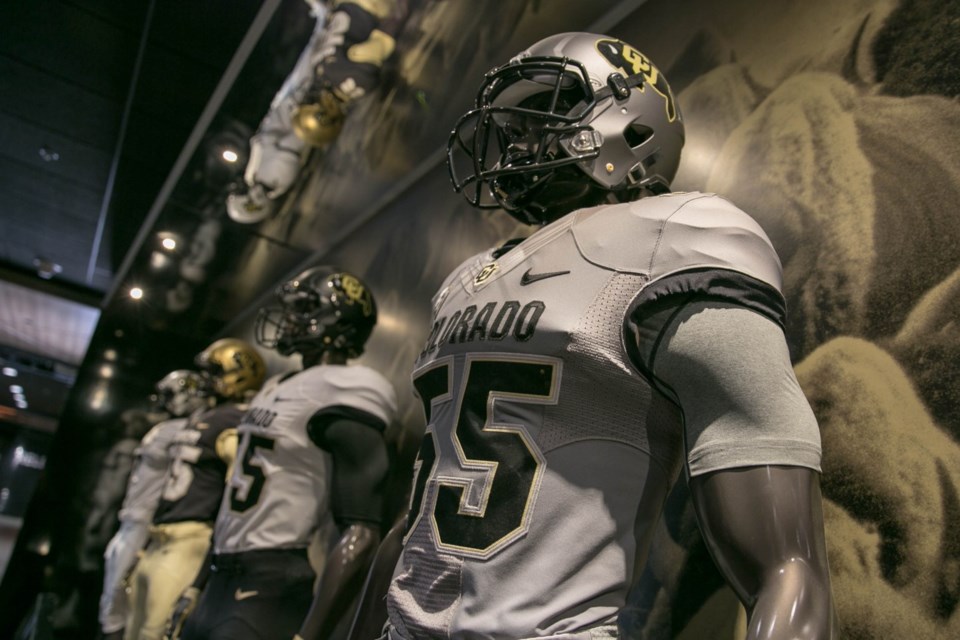Editor’s note: This story was originally published by CPR News and was shared via AP StoryShare.
It used to be that colleges and universities had only a few things to lure potential student-athletes to their campuses: the quality of an education there, facilities, and — because of lucrative TV deals — the chance to shine on a national stage with an eye at turning pro after college.
Now, thanks to a U.S. Supreme Court ruling and rule changes, institutes of higher education have a new tool: Flashy new branding programs that let student-athletes profit off their name, image and likeness for the first time.
Under the NCAA’s new policy allowing student-athletes to accept sponsorship deals and fast-tracked new rules from the state legislature, Colorado’s college athletes can now profit off their so-called “name, image and likeness” (NIL) as of the beginning of this month.
Student-athletes have been fighting for a long time to get paid this way. The NCAA has historically argued that student-athletes were considered amateur athletes and that if they got paid for their prowess, that they would be considered professionals and ineligible to compete in college athletics.
But others said that was unfair, that schools profited off the athletes' names and likenesses to the tune of billions of dollars a year.
A series of court cases was finally settled by the U.S. Supreme Court that ruled unanimously in late June that said student-athletes could be paid for use of their NIL. The NCAA relented and earlier this month started allowing players to accept these sponsorship deals.
The sweeping change has some of the state’s top universities pushing out new branding campaigns to recruit would-be athletes.
University of Colorado Athletic Director Rick George was appointed to the NCAA’s working group on the topic in 2019. CU launched a pilot program to help students work through hypothetical personal branding scenarios later that year.
Now, with the NCAA rule change in effect, “Buffs with a Brand” has shifted to a program helping student-athletes learn how to navigate the sometimes tricky new landscape of accepting paid sponsorships without running afoul of their other athletic eligibility requirements.
Abbey Shea, associate director for compliance in the CU athletics department, said the optional program also helps guide athletes through how the newly passed Colorado law is different from other states. For instance, while NCAA athletes undergo drug testing and are not allowed to use marijuana, an athlete could technically be a paid sponsor of a dispensary. Though she is advising young athletes, just a year or two out of high school, to be mindful.
“If you have aspirations to go pro in your sport, what do your actions now — how do they affect that? Or maybe you have aspirations to go to law school or medical school ... You know, the internet is forever,” Shea said.
CU intends to be vocal about the “Buffs with a Brand” program as part of the school’s recruitment efforts. Shea said how institutions approach NIL policies will likely be a major priority in the college decision process for top high school athletes. But, she added that those top priorities in recruitment change every few years.
Shea said five to seven years ago, a school’s performance nutrition program was a major selling point. A few years ago, it shifted to how an institution approached psychological and health performance.
Shea said she thinks that while NIL policies are now taking the spotlight, she believes that enthusiasm will settle over time. A very small number of famous college athletes will be able to make a lot of money.
Though, for the vast majority of student-athletes, sponsorships will not likely add up to more than additional perks on top of what they are already receiving as student-athletes, she said.
“I don’t think it’s going to be world-changing when it comes to collegiate athletics,” Shea said.
Meanwhile, the U.S. Air Force Academy in Colorado Springs, because of existing federal rules, is changing nothing.
Air Force Academy associate athletic director Troy Garnhart said in an email that the NCAA’s new rules will not affect cadet-athletes, as their military contracts already prohibit sponsorships. Garnhart said it’s unclear whether the move will change how the Academy recruits.
“It could possibly raise some questions for athletes, but we have been different than other schools since we started. So only time will tell if it will be significant,” Garnhart wrote. “The NIL thing really is not a story for us at this time.”


.jpg;w=120;h=80;mode=crop)
